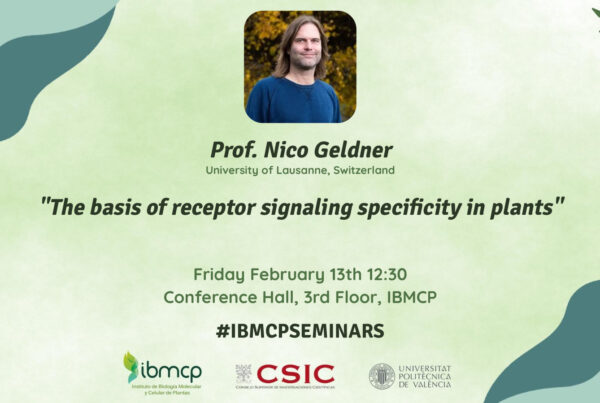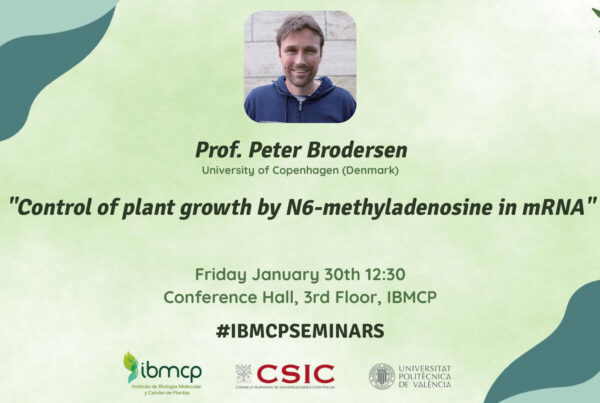Dr. Rosa Lozano-Durán
Center for Plant Molecular Biology (ZMBP), University of Tübingen, Germany
«The cell snatchers – Understanding plant manipulation by viruses»
Abstract
As obligate intracellular parasites, viruses fully rely on the host cell for their replication and spread. Due to restrictions in genome size, viruses commonly produce a limited number of proteins; this is the case of geminiviruses, plant viruses with circular single-stranded (ss)DNA genomes that are believed to contain only 4-8 translated open reading frames. Strikingly, despite their limited armoury, geminiviruses are able to establish systemic infections, reprogramming the cell cycle, overcoming plant defence, dramatically altering plant development and physiology, manipulating the behaviour of their insect vectors, and ultimately causing devastating diseases to crops worldwide. How these viruses successfully invade and manipulate their plant hosts by deploying only a handful of proteins is a long-standing, fascinating question. In our group, we are interested in understanding how geminiviruses co-opt the plant cell and lead to disease, for which we use a combination of approaches, including molecular biology, cell biology, and genetics. Our results have shed light onto the molecular mechanisms underlying the replication of viral DNA, plant anti-viral defence and geminiviral counter-defence, and symptom development, and hint at novel virulence strategies potentially employed by geminiviruses to maximize their coding space and their impact on host functions. We expect that our work will contribute to a deeper understanding of the viral infection, both in plants and other kingdoms of life, which may in turn pave the way to the design of effective and sustainable anti-viral strategies.
Short Bio
Biologist, obtained her PhD in 2010 at the University of Málaga. After four years as a postdoctoral scientist at The Sainsbury Laboratory (Norwich, UK), she started her independent research group at the Shanghai Center for Plant Stress Biology (PSC) from the Chinese Academy of Sciences in 2015. She moved to the Center for Molecular Plant Biology (ZMBP) at the University of Tübingen, Germany, in 2021, where her lab is focused on understanding how viruses manipulate plants, using geminiviruses as relevant research models.
Selected publications
A Defense Pathway Linking Plasma Membrane and Chloroplasts and Co-opted by Pathogens: Cell
Plant DNA polymerases α and δ mediate replication of geminiviruses | Nature Communications
If anyone is interested in meeting with the speaker, please contact Vicente Pallás (vpallas@ibmcp.upv.es).








